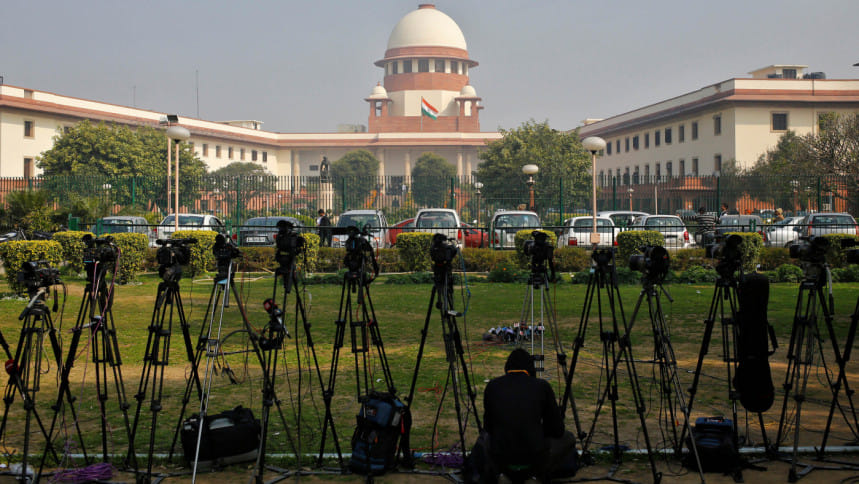Begging not a crime in Delhi, rules Indian HC

Begging in India's capital is not a crime, the Delhi High Court today ruled saying the provisions of penalising the act of begging were unconstitutional.
A bench consisting of acting Chief Justice Gita Mittal and Justice C Hari Shankar said the inevitable consequence of this decision would be that prosecution under the Bombay Prevention of Begging Act against persons alleged to have committed the offence of begging would be liable to be struck down, reports our New Delhi correspondent.
The High Court said the Delhi government is at liberty to bring in alternative legislation to curb any racket of forced begging after undertaking an empirical examination on the sociological and economic aspect of the matter.
The court had on May 16 this year asked how begging could be an offence in a country where the government was unable to provide food or jobs. The court was considering two petitions seeking to decriminalise begging.
The Indian government had earlier told the court that begging should not be a crime if it was done due to poverty.
The petitions, by social activists Harsh Mandar and Karnika Sawhney, have sought basic human and fundamental rights for beggars in the national capital, apart from decriminalising begging.
They have also sought basic amenities such as proper food and medical facilities at all homes for beggars in the city.

 For all latest news, follow The Daily Star's Google News channel.
For all latest news, follow The Daily Star's Google News channel. 




Comments